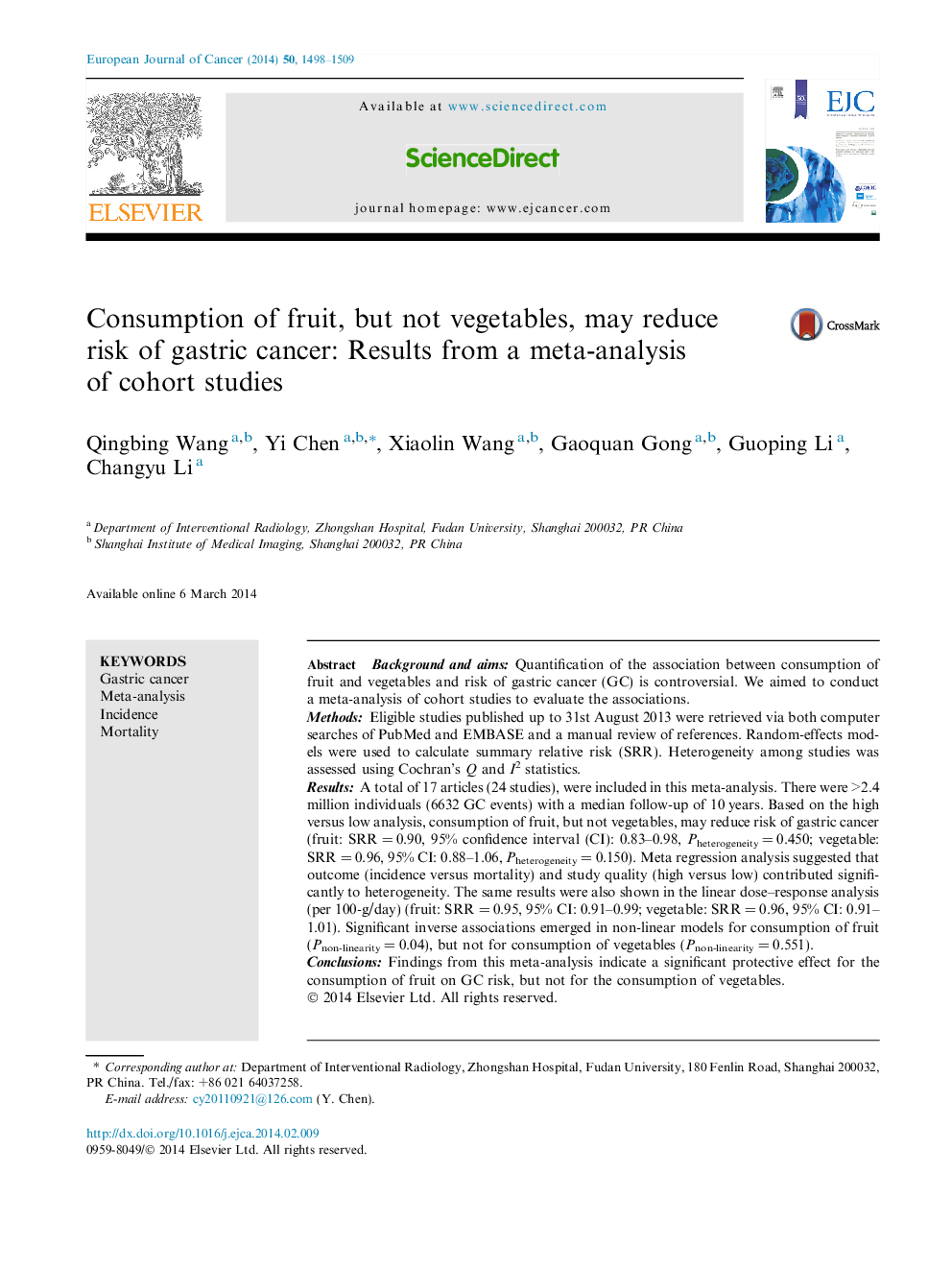| Article ID | Journal | Published Year | Pages | File Type |
|---|---|---|---|---|
| 2121926 | European Journal of Cancer | 2014 | 12 Pages |
Background and aimsQuantification of the association between consumption of fruit and vegetables and risk of gastric cancer (GC) is controversial. We aimed to conduct a meta-analysis of cohort studies to evaluate the associations.MethodsEligible studies published up to 31st August 2013 were retrieved via both computer searches of PubMed and EMBASE and a manual review of references. Random-effects models were used to calculate summary relative risk (SRR). Heterogeneity among studies was assessed using Cochran’s Q and I2 statistics.ResultsA total of 17 articles (24 studies), were included in this meta-analysis. There were >2.4 million individuals (6632 GC events) with a median follow-up of 10 years. Based on the high versus low analysis, consumption of fruit, but not vegetables, may reduce risk of gastric cancer (fruit: SRR = 0.90, 95% confidence interval (CI): 0.83–0.98, Pheterogeneity = 0.450; vegetable: SRR = 0.96, 95% CI: 0.88–1.06, Pheterogeneity = 0.150). Meta regression analysis suggested that outcome (incidence versus mortality) and study quality (high versus low) contributed significantly to heterogeneity. The same results were also shown in the linear dose–response analysis (per 100-g/day) (fruit: SRR = 0.95, 95% CI: 0.91–0.99; vegetable: SRR = 0.96, 95% CI: 0.91–1.01). Significant inverse associations emerged in non-linear models for consumption of fruit (Pnon-linearity = 0.04), but not for consumption of vegetables (Pnon-linearity = 0.551).ConclusionsFindings from this meta-analysis indicate a significant protective effect for the consumption of fruit on GC risk, but not for the consumption of vegetables.
